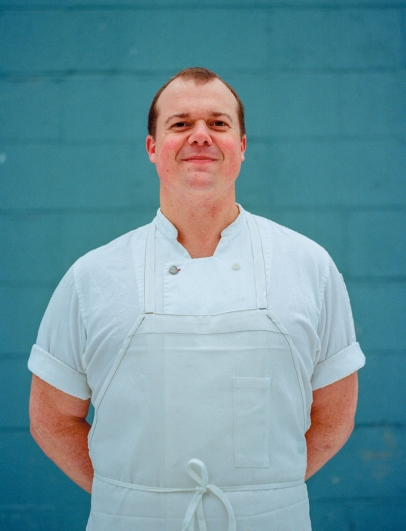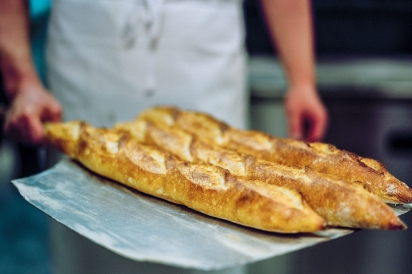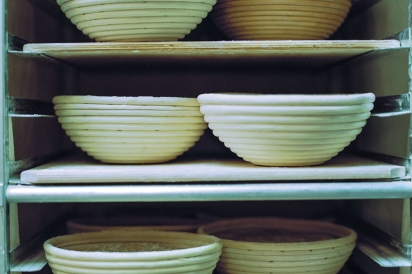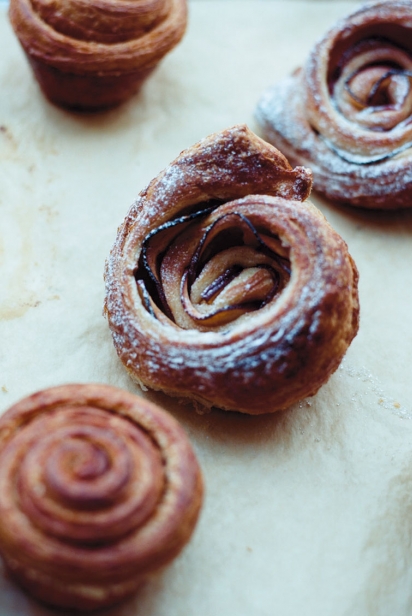Fire Island Bakeshop's Carlyle Watt on the Art of the Day Job
The day the semi-finalists for the 2017 James Beard Award were announced last February, began like any other day for Anchorage baker and musician, Carlyle Watt. However, not long into his morning routine at Fire Island Rustic Bakeshop — where he’s worked since 2012, and served as the head baker since 2014 — he received a text message from a friend who operates a distillery in South Carolina.
“What are the odds,” she asked, “that we would both make the semi-finals list in the same year?”
Watt, leaning into a full, busy shift a world away from his home state, responded, oblivious: “What are you talking about?”“‘You IDIOT,” she texted back and told him to go look at Beard’s semi-finalist list.
It’s fair to say that no one was more surprised than Watt to discover his name short-listed as one of America’s most outstanding bakers. And by not just any organization, but the one responsible each year for an awards event regarded by many as “the Oscars of food.”
“I mean, I knew what the James Beard award was,” he says, laughing. “But it was just never on my radar. Not at all. Mostly because I never imagined it was even a possibility.”
In fact, until only recently, Watt regarded baking as simply a means to afford his music endeavors. He is a founding member — singer, guitarist, and sometime-drummer — of Anchorage’s much-adored band, The Super Saturated Sugar Strings, formed in 2011. Today their shows reliably sell out around the state.
It’s never long into the spectacle of an SSSS show to understand why. The enthusiasm each member brings to his or her individual performance, and the full-hearted investment both the band and audience offer each other during an evening together can make an SSSS show feel magical. When the lights go up at the end, you slip off into the evening feeling like something wonderful just happened, though you’re not quite sure how to describe or name it.
Not all that different, actually, from the feeling you may have enjoying a scone in the cozy warmth of Fire Island, or leaving the bakery and tearing off a piece of a seeded baguette as you walk homeward, marveling at the texture and flavors coming to life as you meet the morning.
At the same time, however, despite his band’s critical acclaim and fiercely loyal fan base, Watt knows too well that “success” by creative and musical definitions rarely ever translates into financial security. Even the most ambitious and intrinsically rewarding musical pursuits largely traffic in uncertainty, and typically for extended periods of time — and the SSSS are no exception. Meanwhile, as a father, husband, and homeowner, this has required Watt master the dance between passion and duty that many artists perform over a lifetime.
And yet, relegating his work at Fire Island to a strict notion of pragmatic sensibility risks a huge disservice to the significant role food has served over the course of his life. While many artists regard their day job as a slog through a workaday grind that provides a means to a sustainable life in their artistic pursuit, customers at Fire Island would be forgiven for assuming Watt’s “day job” is his artistic pursuit. After all, it’s not out of the ordinary for customers to appear awestruck, hushed as they pass along the glass cases at the bakery.
Not bad for a guy who bemoans his earliest forays into baking as producing “some of the ugliest, most awful bread ever.”
While it would take many hours and years to possess even a working grasp of the baking craft, cooking — from the time Watt was very young growing up in South Carolina — always proved a more natural channel for his energies and passions.
“In eighth-grade I would watch Great Chefs, Great Cities on the Discovery Channel and then go cook dinner for my family. My mom was very supportive of the effort — way into it. She’d come home from work and take a nap, and I’d go cook dinner for us. She’s a great cook, but she could see how much I enjoyed it and let me have at it.”
The years following these formative experiments in the family kitchen read like a chef’s guide to living the dream: an undergraduate degree in hospitality management leads to chef’s training at California’s acclaimed Culinary Institute of America (CIA), which in turn paves the way for him to move to Alaska in 2009 to work as a personal chef for a family in Anchorage.
Until connecting with Fire Island after the SSSS’s first tour out of state in 2012, his baking experience was mostly limited to a night baker gig he pursued while attending CIA — the point of origin for the “ugliest” bread ever. “There wasn’t really anybody there to teach me how to do it then. The kitchens would clear out and it’d just be me and some cleaners and I’d be baking bread all night, learning as I went.”
Since then, he claims to owe everything that’s brought him to this stage of his career to Jerry Lewanski and Janis Fleischman, Fire Island’s founders and owners. This includes, of course, last year’s Beard nomination. “When I started working here, there was tons they had to teach me,” he recalls, “They deserve all the credit. They’ve done everything. They’re the ones who made [the James Beard nomination] even possible.”
Baking — even messily — gives Watt pleasure that he found lacking as a chef. “My brother was a woodworker at the time I was trying to sort all this out,” he recalls. “And I realized that as a cook, I never achieved the satisfaction that he did at the end of his day. In a restaurant, you’re usually making something in a closed-off kitchen and just sending out plate after plate. Most times, you don’t see people’s enjoyment of what you made, or really get a sense for their satisfaction or pleasure. Meanwhile, at the end of my brother’s day, he could stand back and look at this chair or some other functional item he’d created.”
“With bread,” Watt continues, “I discovered I can stand back at the end of the work day and look and say, ‘This is what I made today.’”
There’s a mystical nature to the baker’s craft, he says. “You toss all these ingredients together with the yeast, and then you get it all to where it is at its most lively, and then you toss it into a 500-degree oven, locking in the magic,” he explains. “But what we’re really doing is getting this super healthy fermented pre-digested ball of flour, and then murdering it for the good of mankind.”
And that sounds like the seed for a good song.







